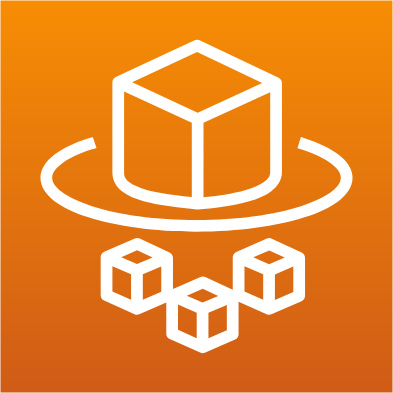On December 1st 2023 AWS are deprecating the trusty go1.x Lambda runtime.
Don’t worry, runs the messaging, just upgrade to the new provided.al2 runtime and all shall be well. Not only that, you can enjoy Graviton support, and the removal of a superfluous API call in the bargain.
Sounds good, right? Well I’m sure it is, but there is a group of people who are out of sorts - those of us who package multiple binaries into a single Lambda zip package.
Now, to be sure, this is not the proper way to Lambda: single-binary, single-package per function has been the dogma for some time (although finally some people are admitting to using Lambdaliths). But it has been a way to Lambda, for some time. There are many serverless use-cases for which latency and package size are not a concern, where deploying multiple binaries is pragmatic. At work, we take such an approach.
Regardless of the merits of the approach, it is a fact that the provided.al2 runtime no longer supports it. If you’ve found this article then maybe you too are staring down the barrel of splitting hundreds of Lambda functions into multiple packages. If so, read on, it may save you some effort…
The Problem
So what even is the problem with multi-binary packages on provided.al2?
The issue is that the runtime requires a single executable, which must be called bootstrap. If you need to support
multiple code-paths, then they must be somehow routed from that entrypoint.
You have a couple of options in dealing with this:
-
Handle the routing of requests to handlers within the
bootstrapbinary. You could do this based on the AWS_LAMBDA_FUNCTION_NAME default environment variable, something like:func main() { functionName := os.Getenv("AWS_LAMBDA_FUNCTION_NAME") switch functionName { case "FirstFunction": lambda.Start(firstFunction) case "SecondFunction": lambda.Start(secondFunction) } ... } -
Move to container-based Lambdas. You can have as many binaries as you wish in a container image. This is probably the cleanest way to retain support for multiple binaries, but comes with its own trade-offs.
The downside of both of these approaches is that they require effort. Changes will likely be needed to SAM templates, to build-chains and to the code itself.
Well good news - there is an easier way.
A Solution
The solution is to use a shim. A shim is a small piece of code that is used to bootstrap a larger piece of code.
The trick here is that the bootstrap binary doesn’t have to be a Go program, it just needs to be executable. Which means
we can drop in a simple shell script - called bootstrap - that will route requests to the correct binary:
#!/bin/bash
exec "${PWD}/${_HANDLER}"
Conveniently, the _HANDLER variable will be set to the path of the handler. Which should be exactly the same as was used in the go1.x runtime! This is best illustrated by way of an example.
In this current (go1.x) snippet, the function handler is located within the .zip package at bin/handle_it:
MyLambdaFunction:
Type: 'AWS::Serverless::Function'
Properties:
Runtime: go1.x
Handler: bin/handle_it
With the shim in place (in the root of the package), we can simply switch one runtime for the other:
MyLambdaFunction:
Type: 'AWS::Serverless::Function'
Properties:
Runtime: provided.al2
Handler: bin/handle_it
The _HANDLER variable is set to bin/handle_it and the shim will exec the binary just as before. No other changes
required!
However, it would be myopic to leave it there. As mentioned at the top of this article, there are some advantages in
moving to the provided.al2 runtime. So let’s take a look at how we can take advantage of them.
The go1.x runtime requires an additional RPC call to the Lambda Runtime API, on each function invocation. This is
explained in more detail here.
The provided.al2 runtime removes this requirement, which should result in a small performance improvement. But we can
also remove the RPC component from the packaged binary, which will lead to faster cold-start times. This is achieved by
adding the lambda.norpc build tag.
The second is that you should take this opportunity to switch to using Graviton processors for your Lambdas. They come in about
a third cheaper than x86, and look good on your carbon balance-sheet. To do this, just add Architectures: [arm64] to
your SAM template, and export the environment variable GOARCH=arm64 to wherever you build your code.
Putting this all together, your template should look something like:
MyLambdaFunction:
Type: 'AWS::Serverless::Function'
Properties:
Runtime: provided.al2
Architectures: [arm64]
Handler: bin/handle_it
And your build command:
$ GOARCH=arm64 go build -tags lambda.norpc -o bin/handle_it
The Caveat
Of course, there is no such thing as a free lunch. The spawning of a shell process will add precious milliseconds to your function invocation time. If you have a high-traffic application, or one which is sensitive to latency, then this may not be the best solution.
Thanks for reading, and good luck with your migration!



